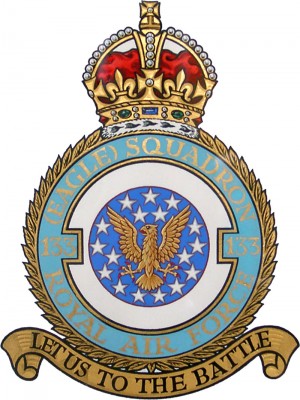 You’ve got your standard mercenaries: hired guns who fight for money. Then you’ve got your fighting for a homeland types: mercenaries (usually) who used to have a cause to fight for, but now all they’ve got is each other, and maybe the hope that someday they’ll find a new homeland to replace the one they’ve lost. Invert that, and you’ve got an eagle squadron: a ragtag bunch of volunteers who leave their homeland to fight for someone else’s cause, usually a sympathetic rebel faction or band of underdog freedom fighters.
You’ve got your standard mercenaries: hired guns who fight for money. Then you’ve got your fighting for a homeland types: mercenaries (usually) who used to have a cause to fight for, but now all they’ve got is each other, and maybe the hope that someday they’ll find a new homeland to replace the one they’ve lost. Invert that, and you’ve got an eagle squadron: a ragtag bunch of volunteers who leave their homeland to fight for someone else’s cause, usually a sympathetic rebel faction or band of underdog freedom fighters.
It isn’t really fair to group these guys with mercenaries, since they aren’t fighting for money or fortune. Far from it. They believe so totally in the cause they’re fighting for that they’re willing to give up their lives for it, even though they could easily go home and live out their lives peaceably. At least, that’s how it is on the idealist side of the sliding scale. On the more cynical side, eagle squadron is really just a Legion of Lost Souls full of thugs and criminals who are hoping to clear their names. Or, even further down the scale, perhaps they just love killing.
Even on the idealist side, there’s always the possibility that your terrorists are our freedom fighters. After all, where did Al Qaeda come from? The Mujahideen, volunteers from all over the Muslim world who joined with the Afghan freedom fighters against the Soviet invasion of the 80s. When they won, it galvanized their Islamist cause and inspired them to take the fight to their homelands, many of which were ruled by dictators. Since the United States props up many of these dictatorships, it was only a matter of time before they turned on us as well.
The name from this trope comes from three volunteer squadrons of US fighter pilots in World War II, who joined the RAF in the fight against the Nazis back when the United States was still neutral. Since the Nazis have pretty much become the standard of all that is evil in the eyes of our modern society, the eagle squadrons are now heroes by default. War is of course more complicated than that, though there is still room for heroism even in a world of moral ambiguity.
When the eagle squadron makes the ultimate sacrifice, you can count on them being remembered as heroes for all time. That’s basically what happened with the Alamo: a bunch of frontier Americans sympathetic to the cause of Texan Independence went to join the fight against Santa Anna and made a bloody last stand when the war went out of their favor. Of course, since history tends to be written by the victors, it’s arguable that this only happens if the survivors go on to win the war. After all, plenty of expatriates volunteered to fight for the Nazis, but we don’t remember them in quite the same way.
Wow, this post turned out to be way more cynical than I’d intended. The basic drive behind this trope is the yearning for an ideal, a cause to fight for. We root for the eagle squadron because we want to believe that all it takes to defeat evil is for good men from across the world to take up arms against it. If Eagle Squadron is led by the Incorruptible, then that might actually be the case, though it’s difficult to make that kind of a story anything other than black and white, one-dimensional, and utterly inauthentic.
I haven’t played with this trope too much yet, though I’ve been meaning to write a prequel book in the Gaia Nova series that tells the origin story for Danica and her band of Tajji mercenaries. Her father was an admiral in the Tajji rebellion, and when the star system fell to the Imperials, they killed her entire family. She escaped, though, and was taken in by an eagle squadron commander that fought alongside her father against the Imperial oppression. After getting back on her feet, she leaves the Eagle Squadron to start her own military band, intent on getting revenge for the loss of her homeworld. I’m not sure yet how the eagle squadron will play into that, but I see the commander as trying to dissuade her from this path.
In any case, it’s definitely a trope I want to play with. I had a lot of fun with fighting for a homeland in Stars of Blood and Glory, so this would be a way to revisit some of the dynamics that made that story interesting. You can definitely expect to see more of this from me in the future.